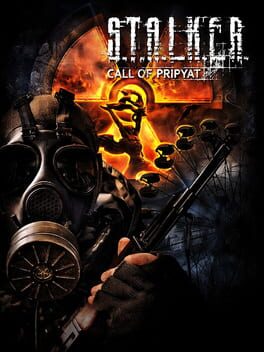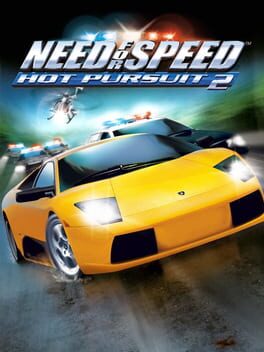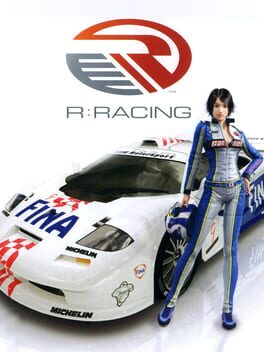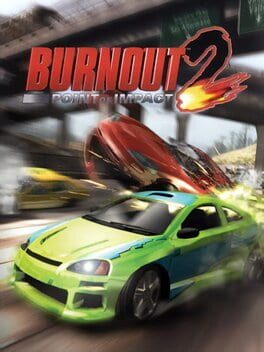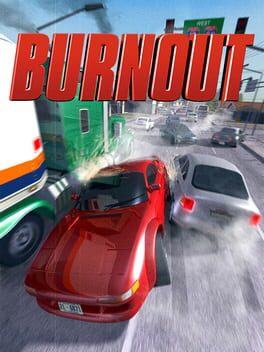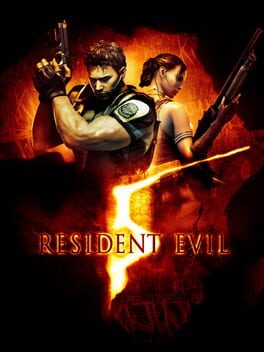TheMilio
I forgor 💀
Badges

Gone Gold
Received 5+ likes on a review while featured on the front page

Loved
Gained 100+ total review likes

1 Years of Service
Being part of the Backloggd community for 1 year

GOTY '23
Participated in the 2023 Game of the Year Event

Well Written
Gained 10+ likes on a single review

Liked
Gained 10+ total review likes

Popular
Gained 15+ followers

On Schedule
Journaled games once a day for a week straight

Elite Gamer
Played 500+ games

Listed
Created 10+ public lists

Organized
Created a list folder with 5+ lists

Busy Day
Journaled 5+ games in a single day

Shreked
Found the secret ogre page

Roadtrip
Voted for at least 3 features on the roadmap

Best Friends
Become mutual friends with at least 3 others

Noticed
Gained 3+ followers

GOTY '22
Participated in the 2022 Game of the Year Event

Gamer
Played 250+ games

N00b
Played 100+ games
Favorite Games
655
Total Games Played
027
Played in 2024
273
Games Backloggd
Recently Played See More
Recently Reviewed See More
Dragon's Dogma II is exactly that - unwilling to accommodate its structure to the modern demands, unapologetically stuck in its own idea of commitment and restrains, and unfathomably fascinating when all those things come together.
Fortunately, they all work together way better in this sequel than its original, and that's because of the egregious amount of polishing that the weakest factors of Dragon's Dogma got. The open world got by far the best treatment, delightfully explorable, even with climbing not being an option in the game, which restricts you to jumping and platforming. This alone marks an unquantifiable step forward from the original. Fetch quests are gone for good - they're replaced by more wisely paced events which you may stumble upon in the world - or may not. Escort quests are too part of a more authentic approach to the game's role-playing features. Main quests and sides quests - they are all true to the elegance of a better written world. Time-gating is here too - featured in less quests, but more involved, more cleverly designed, better written, and overall way more remarkable. One of those, which you may access to even in the most early stages of the game, involves you fighting one of the most fearsome bosses of the game. You may get onboard, do an hike comparable to the original's griffin run, get to the quest, and ultimately fail it. That still counts as completed.
Failure as a state is one of the many accepted outcomes in Dragon's Dogma II. It perfectly fits how much this game is willing to make you miss stuff, purposely hiding chunks of (in corporate speak) content, where other games would basically bend to you and pray "please, experience this thing and extend your playtime", even if at the cost of immersion. DDII is not expecting you to do so - it's simply designed this way. It does not care about you, in that regard. This game's indifference to the player's concerns befalls in every aspect of its journey. The best way to experience it, then, is to live it without fear.
Such is the world you're brought into. One of the first quotes from the game recites how you will come to learn and understand from it - so you might be able to banish all the evil there is in. Nothing was more true than that: explore, learn its ins and outs, understand its opportunities and its threats, find new paths, discover new places, and then backtrack your steps. The reality of transforming a journey from the discovery of the unknown to the sheer mastery of its terrain and what lies ahead only by the knowledge gained its unique to this game - thanks only to how much it conceals itself from the player. There's not bar, value, number or anything that may encompass this feel - it's all about you experiencing things.
Here the real journey in the world of DDII starts. It begins when you stop thinking about the game as checklist in order to experience the game as it is, when you decide to let the flow of things guide you, even if just a bit. You still have the agency you had in the original, but the deepened combat system, the physicality of it, the rag-doll, the environmental interactions, the AI, the game's structure, the depth of the quests and their outcomes - everything is tailor-made to suit curiosity and resourcefulness before all. The consequences of basically everything you may stumble upon are so much deeply rooted in your actions that you may as well recount your findings to a friend playing the game - chances are, he's gonna tell you a whole different story.
Story which is not only a far better suited tale for a game of the likes of DDII, but it's a blank slate of sorts for you ingenuity to manifest. Chosen one yes, but no one gives a shit about it. Hell, some (if not most) even despise you because of that. You'll have the time and the chances to build your affinity with other characters, get to know others, gift them presents, follow them in enormous and entirely missable quest-lines and more. The involvement and commitment you see in every aspect of the game does not fall short here. Instead, some of the strongest story beats and choices you're going to come across are not outspokenly announced by the game. DDII simply requires your attention on most of the times in order to make sense of things. On that, if you come from the original you surely have the upper-hand, but then again - I do, and yet I couldn't keep track of the numbers of times I was left surprised by the game's machinations.
On that regard, it's almost eye-watering how much DDII respects not only your time (even with the commitment required to only enable fast travel) but also your dedication to the game's world and its systems: it knows the player's not here to be hand-holded or to be scolded, but to witness the sheer audacity by which this game is dedicated, obsessively so, to its involvement in things. Keep in mind that there's been an egregious UX pass from the previous but, truth to be told, the updates in accessibility did not detriment the game design. Crazy, right?
On that note, challenge is not born out of the gameplay itself - that's not the point. Apart from the initial hours, the plateau of DDII's dynamic difficulty is quickly reached - and its hardships soon become a memory, apart from some specific outliers. The truest of the test to the player resides in how he undertakes the game's structure. Will he engage the game to the fullest of its extent, or will he fall behind because of the game's unwillingness to please every single soul in this world?
True sovereignty of the world of DDII lies in using to its maximum extent every system that is given in game. You may come to a point when fast travel becomes not only a must - but also cheap and, in that regard, sustainable, even with a lot of upfront expenses to merchants. You can always sell stuff around - and there are small glimpses of an economy in the game, which you may use to your own advantage, such as some goods available only in specific countries of the game's world. You will find out how enhancing an item is not a do-and-done thing, but something with more depth and complexity than before. Camping starts as a luxury, for only to become one of the ways to maximize buffs for the upcoming boss fights. Nights start frightening - and then they become an opportunity to collect things you won't find elsewhere. Same goes for dungeons and bosses. You may find some items only if you visit such dungeons, and some monsters become a treat for your business as an Arisen. One of the vocations being literally the ultimate show of mastery of all of the move-sets of the game, alongside their abilities and spells. It really feels like a power climb of sorts, but in the best way possible. You're not asked to do so: you're doing this out of your own volition. On that, again - a game so coherent in and out of itself.
All of this ultimately became clear as day as soon as you stumble in the end-game. The original game holds nothing compared to this, and the way it's graciously intertwined with the game's world and narrative is just - chef kiss, really. All of this happens while the game unravels itself in the boldest way possible and, dare I say, unmatched even by the likes of other games which tried that thing before. All the systems you've got used to get turned around, and all the items which were collecting dust in your inventory have to be used, and extensively so. As if it wasn't enough, a spectacle which by itself alone eclipses the original Dragon's Dogma final stretch reveals itself right before your eyes. It's remarkable how much this game resonates and communicates with the original and its expansion in a way that, in my opinion, almost requires experiencing the full original game in order to truly taste the accomplishments performed here. I cannot delve more on this in fear of spoilers, but you won't be disappointed.
Some minor criticism can be done regarding the balancing of the vocations, with some really strong exceptions: nothing new if you come from the original game. Other minor things, truly nitpicks from my side, are the more streamlined systems (like the layered armor and dragon-forging) which are more straightforward in expense of... I dunno, flavor? The enemy variety is just a tad better than the original game, with some additions coming straight from Dragon's Dogma Dark Arisen. Some iconic monsters of the original game are, instead, inexplicably missing from the sequel: they do have their replacement, though, in the form of new bosses. Dungeons are way more than before, some of these even bigger than before, but less remarkable from the ones of the first game, level-design and environment art wise. The music in the sequel is missing the electric guitar from the original. Again, I'm really trying to be a pain in the ass to an otherwise phenomenal game.
What would be an unadulterated experience is sadly only stained by micro-transactions, which serve no purpose and have no place here, and the performance, which is still bearable, but subpar in some specific moments of the game. I cannot stress enough how those things are, in my point of view, not detrimental at all to the game's experience. With or without those - the game's still here, and it'll have the same things which will make you either fall in love with it or absolutely despise it. This remains unchanged from the previous iteration of the series - since this game is basically an exponential increase of all the things you adored and loathed of the original. Take it or leave it, really.
In the end it truly is, and I cannot understate it, a case of you get exactly what you're looking for in this game. The more you delve into the game's intricacies', the more you will be rewarded, in a way no other game can achieve. Do take your time with this one - you'll be thanking your past self for that.
Dragon's Dogma II was never about just its gameplay, or its stubbornness in the game systems, or its loose writing - it was always about everything coming all together. The single writings on the wall may encompass only some the strongest or weakest sides of the project, but it's when they become whole that its magic is finally revealed. It's about the war stories of your battles, the tales of your journey from a place to another. It's the unexpected, the unpredictable, the unaccounted for.
And all of that is unique - remarkably so. You'll never find anything like this in any other game for the time being.
Must-Play.
To not lose yourself in the evolutionary process and to be true to your concept even after such substantial changes, it is not a small feat to accomplish.
Helldivers 2 competently achieves that, and even if some stuff is (rightfully so) "lost in translation" in the transition from a twin-stick shooter to a third person shooter, it stills lands as a remarkably confident exercise in game design.
The original Helldivers is pure commitment: every single choice in the moment-to-moment gameplay has a weight and a price to take in account for. Shooting requires standing still, reloading removes an entire magazine from your inventory, support takes time to be called in, friendly fire has to be taken in account, camera is shared between the four players, take too much damage and you're out, or on the ground, and so on. It's a constant knowledge check when it comes to enemies, weapon behavior, environments and mission objectives. So, how do you translate such a well-balanced 2D formula in a 3D game?
More commitment. More involvement. Simply put, "more".
Do you want to escape from the enemies? Unlike the original, stamina's so prominent it's almost always shown in your HUD. Almost depleted? Well, it takes time to recharge, and there's no cardio accelerator, or even all-terrain boots. Do you want to refill it, like, now? You can use a stim, but only if you're wounded. Isn't the stim also used for healing, though? Yeah, right.
Do you want to resupply? Unlike the original, the supply call-in is shared between all the players. It fills half of your resources. You have four charges. Are you empty, and in dare need of ammunition? Better tell your comrades.
This whole dance in between being proactive and reactive applies for, I kid you not, every single action in the game. Arrowhead Game Studios has flipped upside down the original game leaving no feature untouched. It's a "systemic" approach on every prop, element and feature, like how certain enemies interact with specific weapons, the physics, the (funny) rag-doll, the butter-smooth movement, and the crispy gun-play. There's literally nothing that gets in the way of fun and challenge, every single thing you see in your screen has a purpose, and the game-play's so unbelievably tight on both pad and mouse and keyboard.
It looks good. It plays good. It feels good. It's frustrating, it's fun, it's challenging, it's non-stop action, it's relentless. This thing can stand proud alongside the likes of Deep Rock Galactic as far as I'm concerned.
I went in with literally zero expectation and I was constantly blown away by how the game slowly and steadily reveals itself to you the deeper you dig in. The comedian tone is even more emphasized than the original, without feeling obnoxious. How did they manage that with what's basically Starship Troopers (derogatory) on steroids, it's beyond me.
If you want to suffer, go alone. If you want to have fun, go with randoms. But if you want a team-building and friendship-ending experience, bring your pals in. I swear, this thing has no right of being that much fun.
Must-play.



